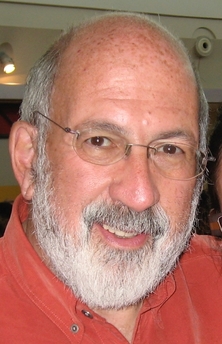CANADIAN SCIENCE AND INNOVATION IS IN A BIND….and at best, it is underperforming
Author(s):
Mark Poznansky

It’s not so much a question of whether we’ve developed a “Culture of Innovation”, whether our kids are interested in science, whether our academic and industrial scientists have the “Right Stuff”, whether our research-intensive institutions are adequately committed or even whether our governments provide enough money for research. They do, but that’s not the limiting factor.
Canadian Science is simply too conservative. Our institutions, our scientists and our governments are too reactive and most often too risk averse.
And even when we have a leadership position in a given endeavor, we often fail to maintain it. We can go way back to the discovery of Insulin (commercialized in the US), more recently to the discovery of stem cells and even more recently to the development of the Smart Phone where our early “front seats” have now lagged well behind the world’s leaders. Too often the rich scientists in Canada get richer, the poor ones muddle along waiting to fall off the wagon (as they should) and many of the young scientists with fresh new ideas struggle. It takes too long for them to establish their careers, they often journey under the thumb of “research czars”, become discouraged and too often leave Canada for greener pastures. They are NOT encouraged to be risk takers which is a frequent NORM in leading Science.
Further evidence of our failure to support real excellence is the absence of “our share” of major international awards; Nobels, Laskers, GMs and FRSs. In the same vein we can see a serious under representation of Canadians in International Journals (e.g. SCIENCE and NATURE) or at International Conferences. And I don’t believe that it is simply a question of dollars. Since the days of Chretien and Martin and following on through the Harper days, the support for Science has been substantial. And many of the provinces (notably, British Columbia, Alberta, Ontario and Quebec) have made similarly major investments driven largely by the hopes of economic development which have been followed by substantial private sector investments. And even so the research enterprise does not thrive especially beyond the halls of academia.
What are my solutions
Canada should set aside a minimum of $500M (annually) of its current multi-billion research budget to fund novel projects that will advance the Canadian economy. The emphasis on time-limited, discrete projects as opposed to the multitude of ongoing research programs, often carried out in a quite traditional way by Canada’s academic research centres is critical. This might entail the announced Strategic Science Fund, but it must not be business as usual where the funds go to established and often traditional research initiatives in either the public or private sectors. There is a prototype program run in the US called DARPA (Defense
Advanced Research Projects Agency). Their mission is to make pivotal investments in breakthrough technologies for national security. In Canada we might simply substitute the word security for economy.
Canada needs to take a lesson from other bold and audacious plans that have yielded incredible knowledge and economic development. Kennedy’s 1961 plan to land a man on the moon before the end of the 60s or public and private sector plans in the early 80s to map the entire human genome were such initiatives. When they were conceived many of the technologies to complete the tasks had not been developed and it wasn’t even clear that the proposals were feasible. But smart and effective leaders were given the opportunity and the rest as they say is history.
Canada may not be able to approach initiatives as vast and expensive as the Man on the Moon project but surely we can pick truly innovative approaches to problems that are unique and to use a well-worn cliché, to go… “Where No One Has Gone Before”. That is the true essence of innovation and that is what will yield return from Canada and for its economy.
More on the Author(s)
Mark Poznansky
Ontario Genomics
Former CEO
SpindleStrategy.com
Senior Advisor

